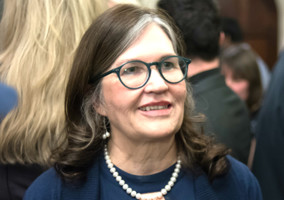Over half of finance professionals working at charities do not think existing governance models work for the whole sector.
However, an overwhelming majority said that they enjoyed a positive relationship with their own boards.
A survey of 157 charity finance professionals, conducted by Civil Society Media's Charity Finance magazine in January this year, looked at how effectively they worked with their trustees and their satisfaction with governance structures in the sector.
Some 55% did not feel that current governance models were “fit for purpose” for all charities, compared to 36% who said that they were.
Most finance professionals reported a good relationship with the board at their own charity. 40% rated the effectiveness of that relationship as “excellent” and another 43% said it was “good”. Only 3% described the relationship as “poor”.
Support for reform
There was also support for specific reforms to charity governance.
Half the people surveyed said that it should be easier for all charities to adopt a unity board structure, a model widely used in the corporate sector which combines executive and non-executive board members, remunerates all members, and gives the board collective responsibility to manage the organisation. Only 5% said they did not support such reform.
A similar proportion (49%) supported making it easier for charities to pay their trustees “in some cases”, but 31% were opposed.
'Well-meaning amateurs'
Bob Humphreys, treasurer at the Education Development Trust and formerly a director of finance at Oxfam International, said that the results showed charities were right to think about the gap between traditional governance models and the complexity of many modern-day organisations.
“These days, charities are much more complex and require far more specialist knowledge and skill to run them effectively”, Humphreys said.
“However, in many cases the trustee board is composed primarily of well-meaning amateurs. We know that sometimes the best questions are asked by those who are not insiders but who are curious and perceptive, but it’s inevitable that the odds of someone without relevant experience being able to consistently add value to a board, compared to someone with relevant skills, are lower”.
Helena Wilkinson, partner and head of charities and NFP at the accountancy firm Price Bailey, argues that unitary boards could help clarify decision-making, especially if senior staff were included on more powerful charity boards.
“Comments like ‘well it was the board’s decision’ or ‘they would not listen’ would no longer be excuses that charity chief executives could use as to why the strategy was awry or the charity was not successful”, Wilkinson said.
“There would be a united front on governance as all decisions would be appropriately debated and agreed upon by the board, which would include the executives.
“I would suggest that as a minimum the chief executive should be a trustee on all charity boards and would actually recommend that should be serious consideration to including the whole senior management team”.
Related articles












